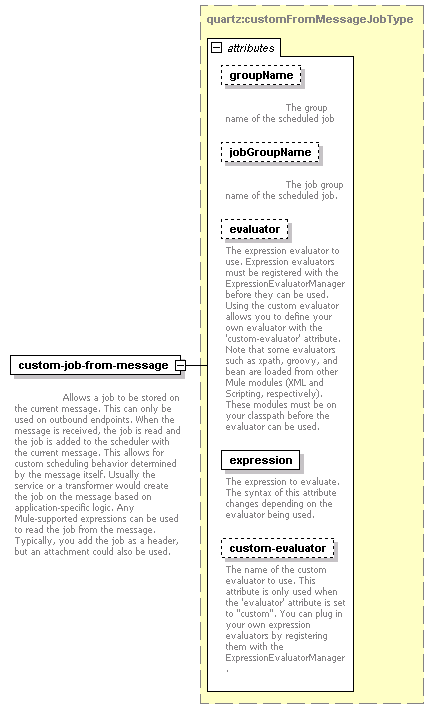element <custom-job-from-message> (global)
Namespace: |
|
Type: |
|
Content: |
empty, 5 attributes |
Subst.Gr: |
|
Defined: |
|
Used: |
never |
Content Model Diagram
XML Representation Summary |
| <custom-job-from-message |
| |
|
= |
xsd:string |
|
= |
xsd:string |
|
= |
("attachment" | "attachments" | "attachments-list" | "bean" | "endpoint" | "exception-type" | "function" | "groovy" | "header" | "headers" | "headers-list" | "json" | "json-node" | "jxpath" | "map-payload" | "message" | "mule" | "ognl" | "payload" | "process" | "regex" | "string" | "variable" | "xpath" | "xpath2" | "xpath-node" | "custom") |
|
= |
xsd:string |
|
= |
(xsd:string | xsd:NMTOKEN) |
|
| /> |
May be included in elements by substitutions (3):
-
Annotation
Allows a job to be stored on the current message. This can only be used on outbound endpoints. When the message is received, the job is read and the job is added to the scheduler with the current message. This allows for custom scheduling behavior determined by the message itself. Usually the service or a transformer would create the job on the message based on application-specific logic. Any Mule-supported expressions can be used to read the job from the message. Typically, you add the job as a header, but an attachment could also be used.
XML Source (w/o annotations (1); see within schema source)

